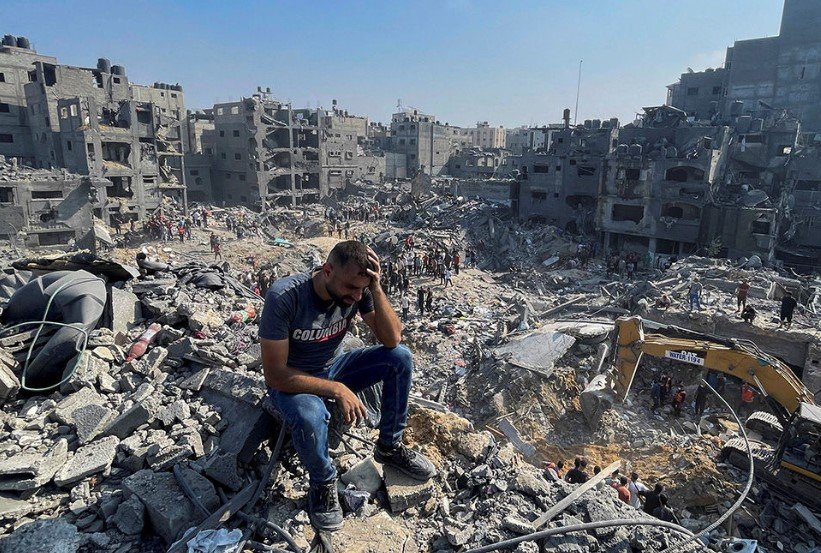Egypt is urging Israel to accept a ceasefire proposal that Hamas has already approved, while Prime Minister Benjamin Netanyahu moves forward with plans for a major military operation in Gaza City. This comes amid rising tensions in the nearly two-year war, with mediators from Qatar and Egypt working to restart talks as the Palestinian death toll surpasses 62,000.
Ceasefire Proposal Details Emerge
Egypt and Qatar presented a new truce plan to Hamas, which the group accepted on August 19, 2025. The proposal calls for a 60-day ceasefire, the release of some hostages, and steps toward humanitarian aid in Gaza.
Mediators say the plan is similar to earlier ideas from U.S. envoys. It includes freeing 10 living hostages in the first phase, along with bodies of others who died. In return, Israel would release Palestinian prisoners and allow more aid trucks into Gaza.
Hamas leaders stated they agreed after pressure from Arab nations. They hope this leads to a permanent end to the fighting. Israel has not rejected it outright but is reviewing the terms carefully.
The proposal also sets up talks for a full Israeli withdrawal from Gaza and rebuilding efforts over five years. Aid delivery would involve the United Nations and Red Cross right away.
Israel’s Response and Internal Debates
Prime Minister Netanyahu announced on August 20, 2025, that he is speeding up plans to capture Gaza City. He instructed the army to shorten timelines for defeating what he calls the last Hamas strongholds.
Israel called up 60,000 reserve soldiers for the operation. Military leaders will present final plans to Netanyahu soon. This move shows Israel’s focus on military goals over quick truce talks.
Inside Israel, opinions differ. Finance Minister Bezalel Smotrich threatened to leave the government if a deal weakens Israel’s position. Opposition leader Benny Gantz is thinking about rejoining to push for hostages’ return.

A senior Israeli official said no team will go to Qatar or Egypt for talks yet. Israel wants all hostages freed at once and Hamas to give up power in Gaza.
- Key Israeli demands: Full hostage release, Hamas surrender, and no partial deals.
- Potential risks: The operation could raise civilian deaths and hurt truce efforts.
- Government views: Some ministers support fighting, others want talks to save lives.
Diplomatic Efforts Heat Up
Strategic Affairs Minister Ron Dermer met Qatari officials in Paris on August 19, 2025, to discuss the truce. He repeated Israel’s call for a complete deal, not phased steps.
Egypt called on Israel to approve the plan on August 20, 2025. Cairo sees it as a way to stop the war and swap prisoners. Qatari leaders are also pushing both sides to negotiate.
U.S. officials back the proposal, saying it matches their earlier ideas. They urge Israel to respond soon to avoid more violence.
Mediators plan more meetings in Cairo. A Qatari prime minister may join talks with Egyptian and Hamas officials.
| Aspect | Ceasefire Proposal | Israel’s Operation Plans |
|---|---|---|
| Timeline | 60 days initial truce | Shortened to weeks |
| Hostages | Release 10 alive, plus bodies | Not addressed directly |
| Troops | Partial withdrawal | Full advance into Gaza City |
| Aid | Immediate UN/Red Cross delivery | Possible delays due to fighting |
| Goals | End war, rebuild Gaza | Defeat Hamas strongholds |
Impact on Gaza and Broader Region
The war, which started after Hamas attacks on October 7, 2023, has killed over 62,000 Palestinians, Gaza’s health ministry reports. Many are civilians, caught in the crossfire.
Gaza City, once home to over 500,000 people, faces full evacuation if Israel attacks. Residents fear more destruction after months of bombings.
Humanitarian groups warn of famine and disease without a truce. Aid has dropped sharply, leaving millions in need.
Regionally, the conflict risks spreading. Recent clashes with Hezbollah in Lebanon add to fears of a wider war.
Experts say a deal could ease tensions, but Israel’s operation might block progress. Past talks failed over similar issues.
Global Reactions and Next Steps
World leaders call for peace. The United Nations urged both sides to accept the truce on August 20, 2025. Protests in cities like London and New York demand an end to the fighting.
Analysts predict Israel may pause the operation if talks advance. But Netanyahu’s statements suggest he prioritizes military victory.
The coming days are key. If Israel rejects the plan, fighting could intensify. A yes could bring the first major break in the war.
Share your thoughts on this development in the comments below, and pass this article to others who follow Middle East news.
